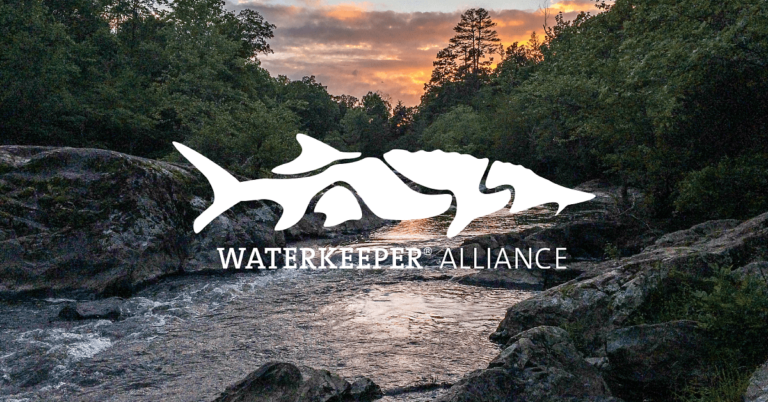Atchafalaya Groups Seek Halt to Construction of Bayou Bridge Pipeline
By: Waterkeeper Alliance

Federal Judge Will Hear Requests for Immediate Injunction in Atchafalaya
Seeking an immediate halt to the controversial Bayou Bridge pipeline, several groups today asked a Louisiana federal court for an immediate injunction on pipeline construction in the Atchafalaya River Basin, one of our nation’s ecological crown jewels, as well as surrounding communities and ecosystems.
The groups – Atchafalaya Basinkeeper, the Louisiana Crawfish Producers Association (West), Gulf Restoration Network, Waterkeeper Alliance and Sierra Club, represented by lawyers at Earthjustice – made this request to stop construction from moving forward while a lawsuit, filed on January 11, is being considered by the court. The lawsuit contends that the U.S. Army Corps of Engineers issued permits and authorizations for the 162-mile pipeline without adequate environmental review – in a violation of the Clean Water Act and the National Environmental Policy Act.
The Bayou Bridge pipeline project proposes to connect the controversial Dakota Access pipeline, which transports volatile and explosive Bakken crude oil from North Dakota to refineries in St. James Parish and export terminals, forming the southern leg of the Bakken Pipeline. Energy Transfer Partners, which owns the Dakota Access Pipeline and is a joint owner in the proposed Bayou Bridge Pipeline, has one of the worst safety and compliance records in the industry.
“Energy Transfer Partners has a deplorable track record when it comes to respect for our environment and our nation’s irreplaceable ecosystems,” said Jan Hasselman, an Earthjustice attorney for the plaintiffs. “We can’t allow them to run roughshod over the Atchafalaya Basin’s bottomland hardwoods, cypress swamps, bayous and backwater lakes – and the communities that rely on them – particularly when the Corps failed to adequately consider the risks posed by this project.”
The proposed pipeline threatens to degrade forested swamps in the Atchafalaya Basin, and destroy wild crawfish habitat by making permanent the illegal spoil banks that are already destroying swamps along the Bayou Bridge pipeline right-of-way. Before any more pipelines are built in the Basin, the Corps needs to enforce existing permits and bring illegal rights-of-way back into compliance.
“There are already miles of pipelines crisscrossing the Basin that have decimated our water quality, creating hypoxic water that kills crawfish, and filled the Basin with so much sand that our ability to fight flooding has been seriously compromised,” said Jody Meche, a commercial crawfisherman with the Louisiana Crawfish Producers Association, West. “Why should we let a company that has already proven it has no regard for our environment or our way of life do even more harm?”
“Not only is the Atchafalaya Basin critical for migratory birds and the persistence of Cajun culture, but it also protects millions of people from Mississippi River floods,” said Dean Wilson, executive director of the Atchafalaya Basinkeeper. “It is negligent for our agencies to continue allowing unrestricted oil development in the Basin without enforcing our environmental laws.”
In addition to the harms presented by pipeline spoil banks and tree clearing for construction, the overall health of the basin would be threatened by potential leaks and spills – a routine occurrence for old and new pipelines. One study revealed an average of 20 major spills occur in Louisiana each year.
Federal data shows that Energy Transfer Partners and its subsidiary Sunoco Inc. have been responsible for at least 329 “significant” pipeline incidents across the country in the last decade, and Energy Transfer Partners was responsible for five spills from their new Dakota Access Pipeline in the first six months of operation. On January 24, the Federal Energy Regulatory Commission ordered a halt to construction of the Energy Transfer Partners Rover pipeline for a second time because of spills during construction.
“Energy Transfer Partners has proven time and time again that it can neither construct nor operate new pipelines without spilling,” said Larissa Liebmann, Waterkeeper Alliance Staff Attorney. “This injunction is necessary to protect the communities and waterways from bearing the costs of yet another irresponsible pipeline build-out.”
“Losing the delicate wetland forest in the path of this pipeline will cause damage that no amount of money can fix. No amount of money can regrow what Energy Transfer Partners is cutting down today,” said Julie Rosenzweig, Director of the Sierra Club Delta Chapter. “Conversely, a delay sufficient to allow plaintiffs’ concerns to be heard in court would not pose any risk to ETP that would be irreparable. The balance of fairness is clearly in favor of granting this temporary injunction.”
“A company with as egregious a track record as Energy Transfer Partners should not be given free rein to move ahead with construction of their dirty, dangerous pipeline as legal challenges continue,” said Sierra Club Beyond Dirty Fuels campaign director Kelly Martin. “There still has not been an adequate review of the damage this pipeline would do to communities and families along its route, and allowing construction to continue in the meantime puts them at an unacceptable risk.”
“All we are asking is that the people impacted by this pipeline get their day in court before ETP does irreparable harm to the Atchafalaya Basin and the Louisianians who rely on it,” said Matt Rota, Gulf Restoration Network Senior Policy Director. “We cannot afford to forsake our waterways and our local economies for an out-of-state company that provides hardly any jobs or economic benefit to the residents of Louisiana.”
The preliminary injunction motion is available here. The court will likely issue a schedule for briefing and resolving the motion in the days ahead.